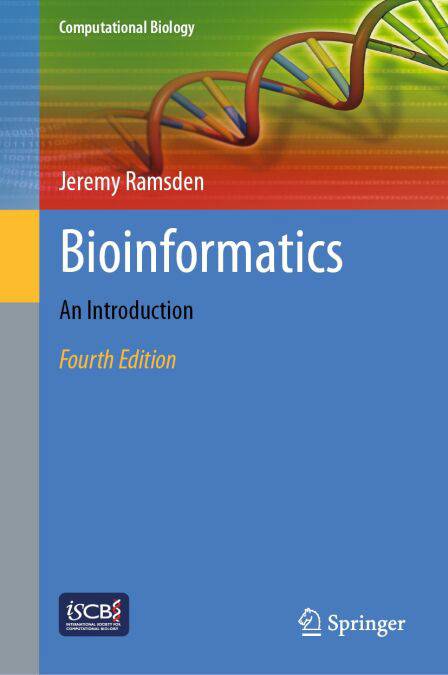
- Retrait gratuit dans votre magasin Club
- 7.000.000 titres dans notre catalogue
- Payer en toute sécurité
- Toujours un magasin près de chez vous
- Retrait gratuit dans votre magasin Club
- 7.000.0000 titres dans notre catalogue
- Payer en toute sécurité
- Toujours un magasin près de chez vous
Description
This invaluable textbook presents a self-contained introduction to the field of bioinformatics. Providing a comprehensive breadth of coverage while remaining accessibly concise, the text promotes a deep understanding of the field, supported by basic mathematical concepts, an emphasis on biological knowledge, and a holistic approach that highlights the connections unifying bioinformatics with other areas of science.
The thoroughly revised and enhanced fourth edition features new chapters focusing on regulation and control networks, the origins of life, evolution, statistics and causation, viruses, the microbiome, single cell analysis, drug discovery and forensic applications. This edition additionally includes new and updated material on the ontology of bioinformatics, data mining, ecosystems, and phenomics. Also covered are new developments in sequencing technologies, gene editing methods, and modelling of the brain, as well as state-of-the-art medical applications. Of specialtopicality is a new chapter on bioinformatics aspects of the coronavirus pandemic.
Topics and features:
Explains the fundamentals of set theory, combinatorics, probability, likelihood, causality, clustering, pattern recognition, randomness, complexity, systems, and networks Discusses topics on ontogeny, phylogeny, genome structure, and regulation, as well as aspects of molecular biology Critically examines the most significant practical applications, offering detailed descriptions of both the experimental process and the analysis of the data Provides a varied selection of problems throughout the book, to stimulate further thinking Encourages further reading through the inclusion of an extensive bibliographyThis classic textbook builds upon the successful formula of previous editions with coverage of the latest advances in this exciting and fast-moving field. With its interdisciplinary scope, this unique guide will prove to be an essential study companion to a broad audience of undergraduate and beginning graduate students, spanning computer scientists focusing on bioinformatics, students of the physical sciences seeking a helpful primer on biology, and biologists desiring to better understand the theory underlying important applications of information science in biology.
Dr. Jeremy Ramsden is Hon. Prof. of Nanotechnology in the Department of Biomedical Research at the University of Buckingham, UK.
Spécifications
Parties prenantes
- Auteur(s) :
- Editeur:
Contenu
- Nombre de pages :
- 404
- Langue:
- Anglais
- Collection :
Caractéristiques
- EAN:
- 9783030456078
- Date de parution :
- 14-09-23
- Format:
- Ebook
- Protection digitale:
- Adobe DRM
- Format numérique:
- ePub

Les avis
Nous publions uniquement les avis qui respectent les conditions requises. Consultez nos conditions pour les avis.






